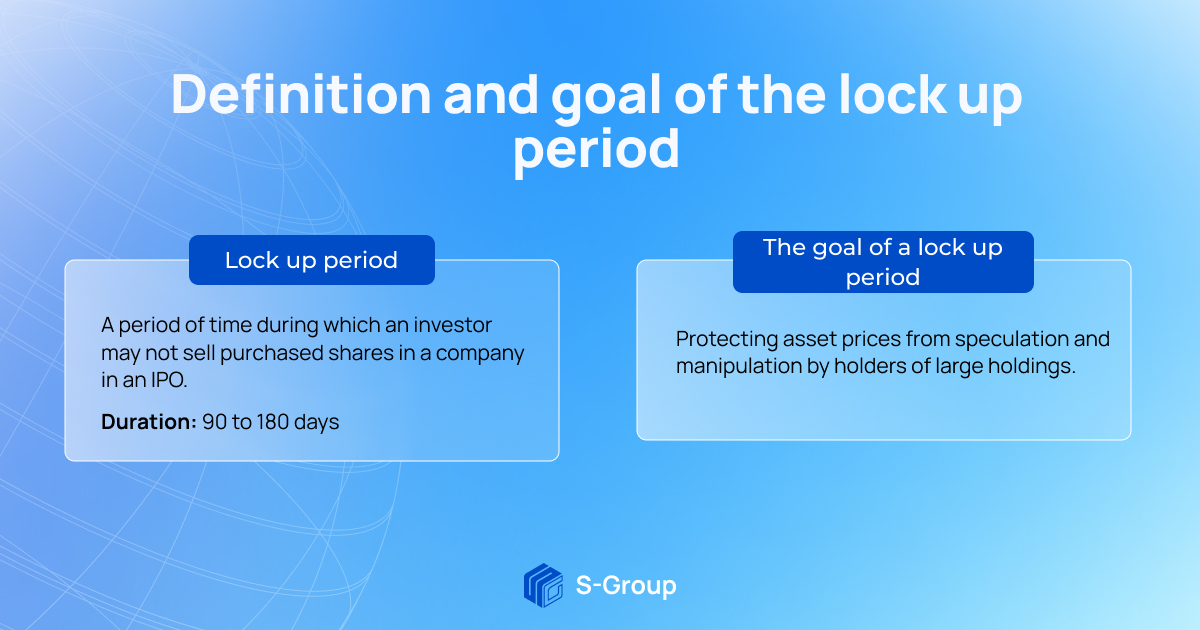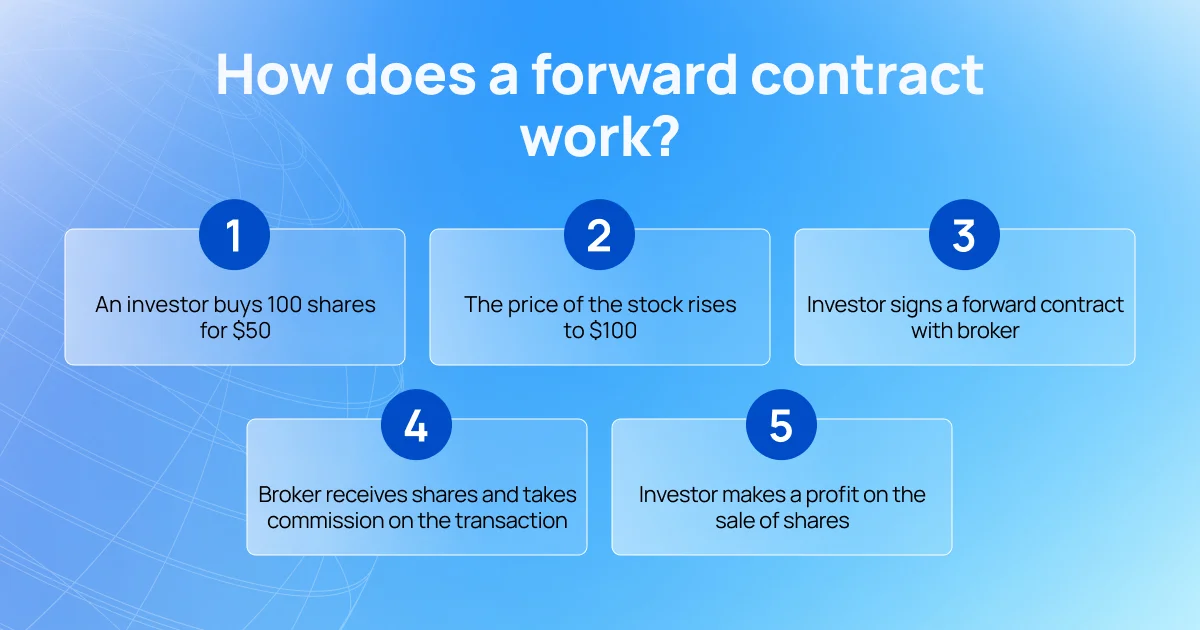Lock up the IPO period: everything an investor needs to know

Companies launch IPOs and go public in order to raise funds for further development. Investors buy shares at the best possible price in a Pre-IPO or IPO, after which they can sell the purchased assets and earn money.
After a company launches an IPO, the share price very often rises and if a significant portion of investors sell the assets immediately, their value falls. To prevent the share price from falling, companies establish a lock-up period during which investors cannot sell assets.
What is a lock up period? Why is it necessary? What does it mean to an investor? Read on for answers to these questions.
What is a lock up and why is it needed?

The lock up period is a period of time during which an investor may not sell the company's stock in an IPO. The lock-up period starts when the company goes public and lasts between 90 and 180 days.
The US Securities and Exchange Commission (SEC) does not require companies that go public to establish a mandatory lock-up period. The lock-up periods are set by the company itself or required by the investment bank.
The main purpose of the lock-up period is to protect the asset price from speculation and manipulation by holders of large holdings of shares. If the company's stock rises after the IPO and the holders of the large block of shares wants to sell it, its price will instantly drop, forcing other investors to sell the shares as well.
How does the share price move during the lock up period?
The lock-up period protects the share price from manipulation and speculation, but it does not guarantee a multiple increase in the share price or the absence of a bounce in the share price during trading on the stock exchange.
In the first days after the IPO, the share price will usually rise due to the high attention and excitement. It can then go up as well as down.
Once the lock-up period is over (the first 2-3 days), the share price will most often drop because many investors start to sell the shares. This moment is a great opportunity to buy a company's shares at a bargain price for investors who have not participated in an IPO or Pre-IPO.
The most striking example of a change in the price of assets during a lockup is Facebook shares, which fell by 50%. At the time of release the share price was $38, after three months it had fallen by 50%, but soon rose again. Most investors began selling the stock en masse at the time and now regret it.
The importance of a lock up period for an investor
The lock up period gives an investor who bought shares in a company in an IPO the opportunity to see the real market value of the assets without the influence of large block holders and the hype. After the lock-up period has expired, the investor will be able to decide what to do with the shares next: sell, buy more or hold waiting for the highest price.
But there are also situations where an investor sees a company's shares falling during a lock-up period. In that case, the question arises — how to sell the purchased assets before the lock-up period ends? This can be done by entering into a forward contract, if the brokerage company with which you cooperate makes it possible. Under a forward contract, the broker himself buys back the shares from the investor at the current price and takes a commission for this.
Let's look at the essence of a forward contract with an example.

An investor bought 100 shares of a company in an IPO at $50 per asset, investing $5,000. A month later, the price of the assets has risen by 100% and is now $100; accordingly, the investor's capital has increased to $10,000.
At this point, the investor decides to lock in his profit and does not want to wait for the lock-in period to end as he is afraid the price may fall. He goes to his broker, offers to make a forward contract and sells him the shares at the current rate.
As a result, the investor gets his capital and guaranteed profit until the end of the lock up period.
Conclusion
The lock-up period is an important tool that gives a company an opportunity to protect itself from a sharp fall in the value of its assets. Investors, during a lock up period, can monitor the price of assets, buy more shares after the lock up period as the price tends to fall, or make a forward agreement and sell the assets at the best possible price without waiting for the lock up period to end.
Share
Interesting
Would you like to receive a digest of articles?
One email with the best articles of the week.
Sign up so you don't miss anything.